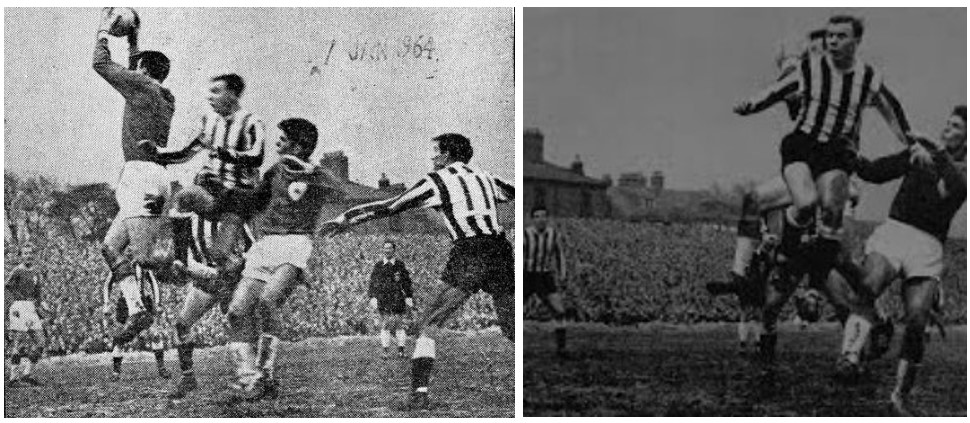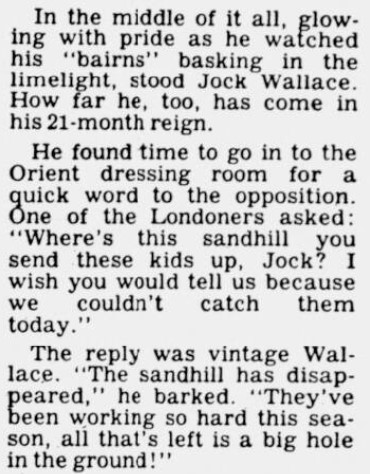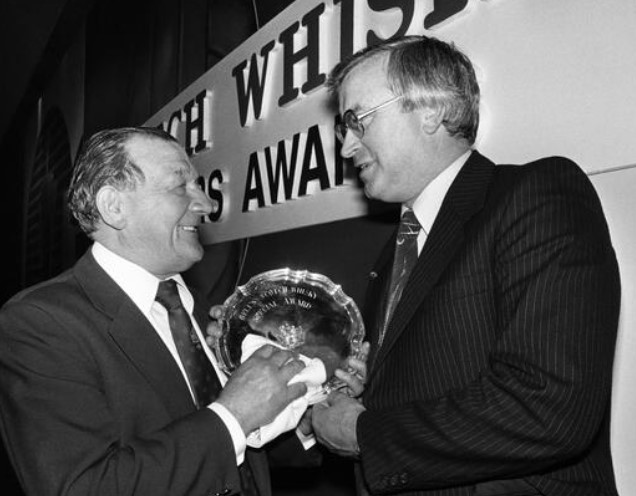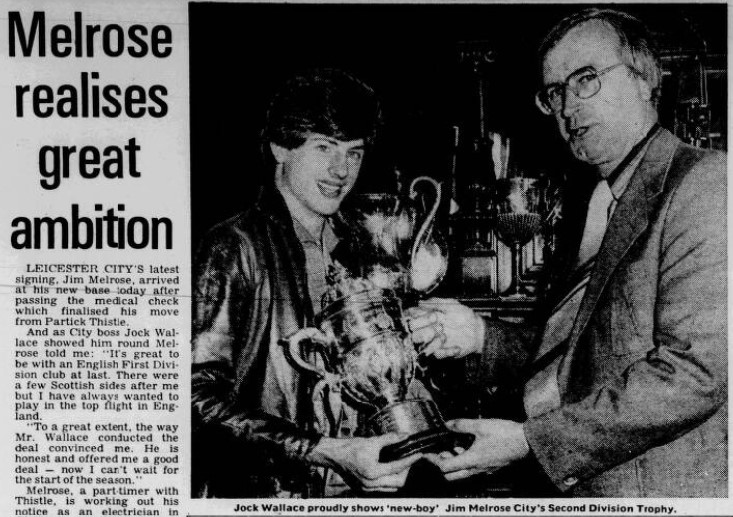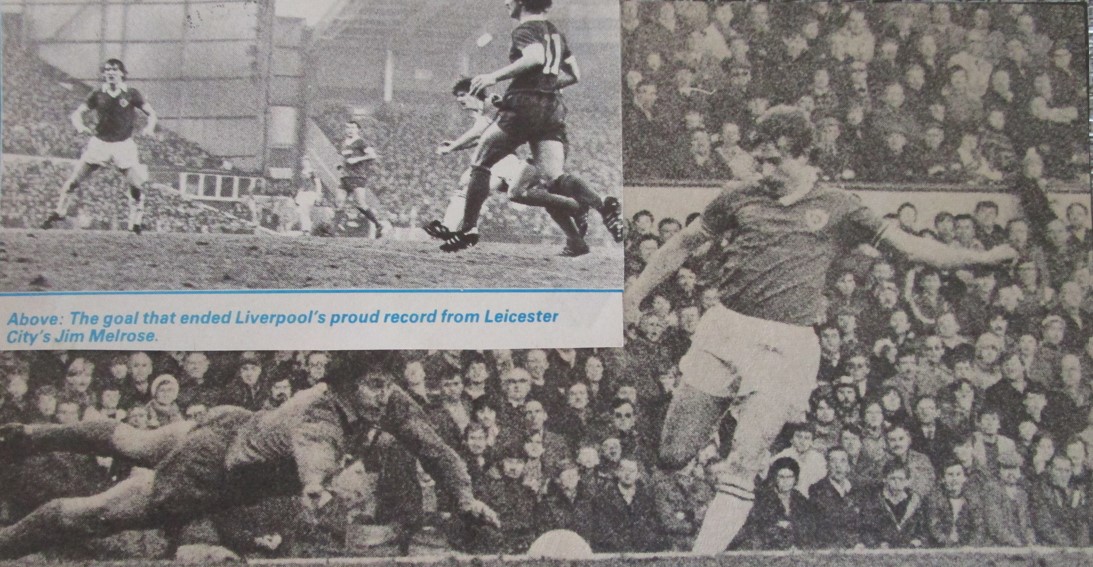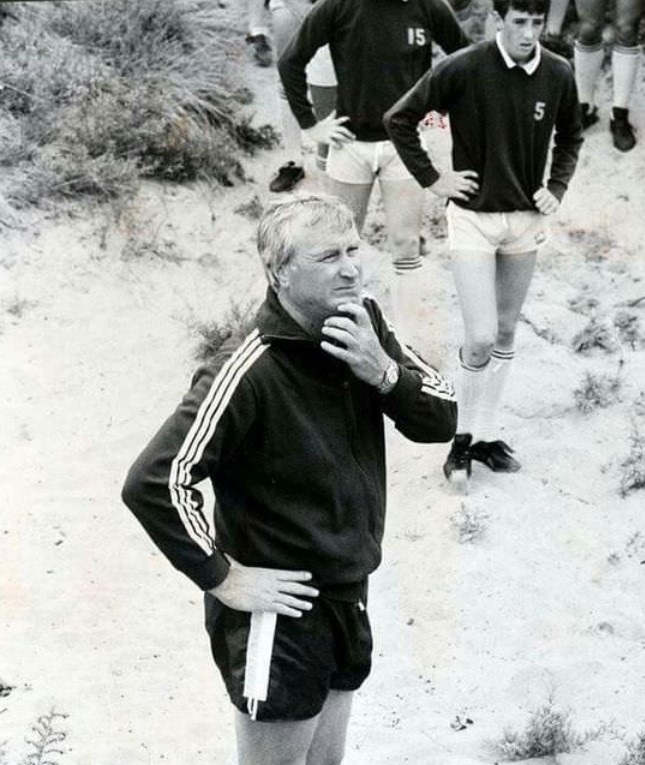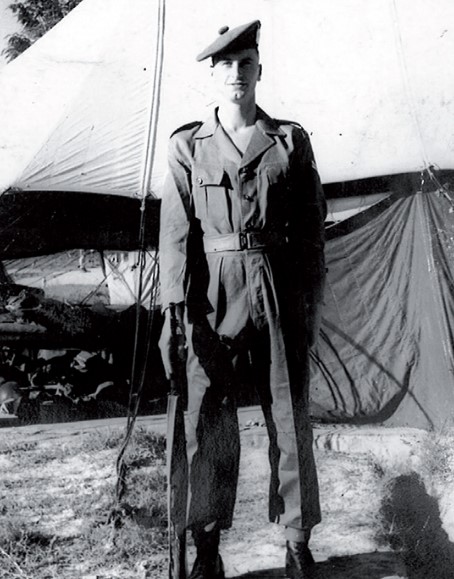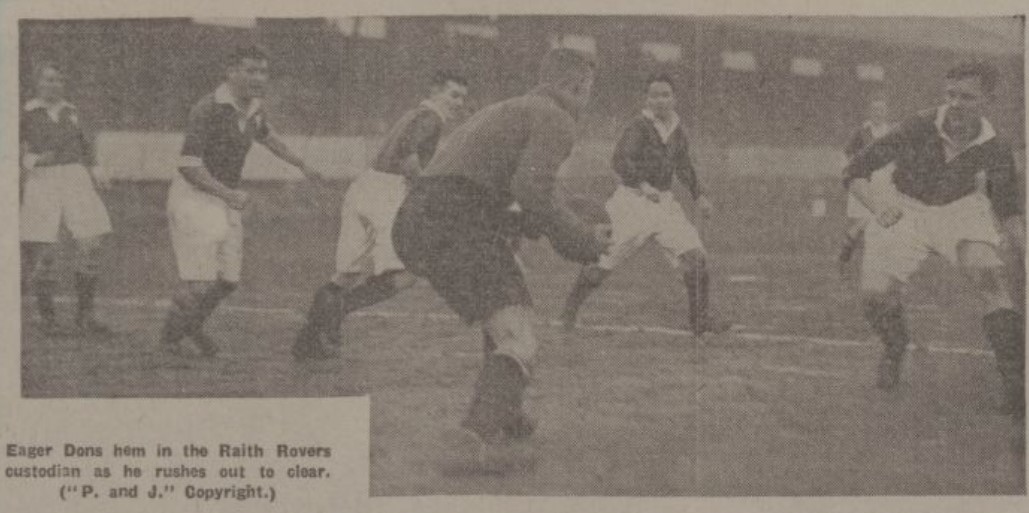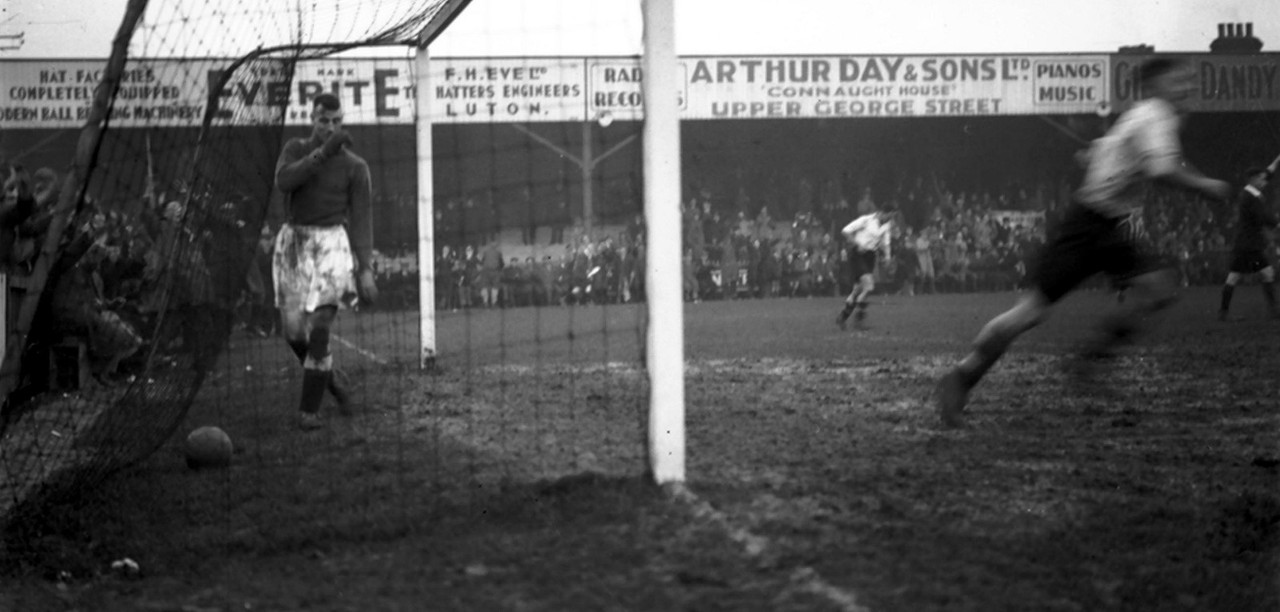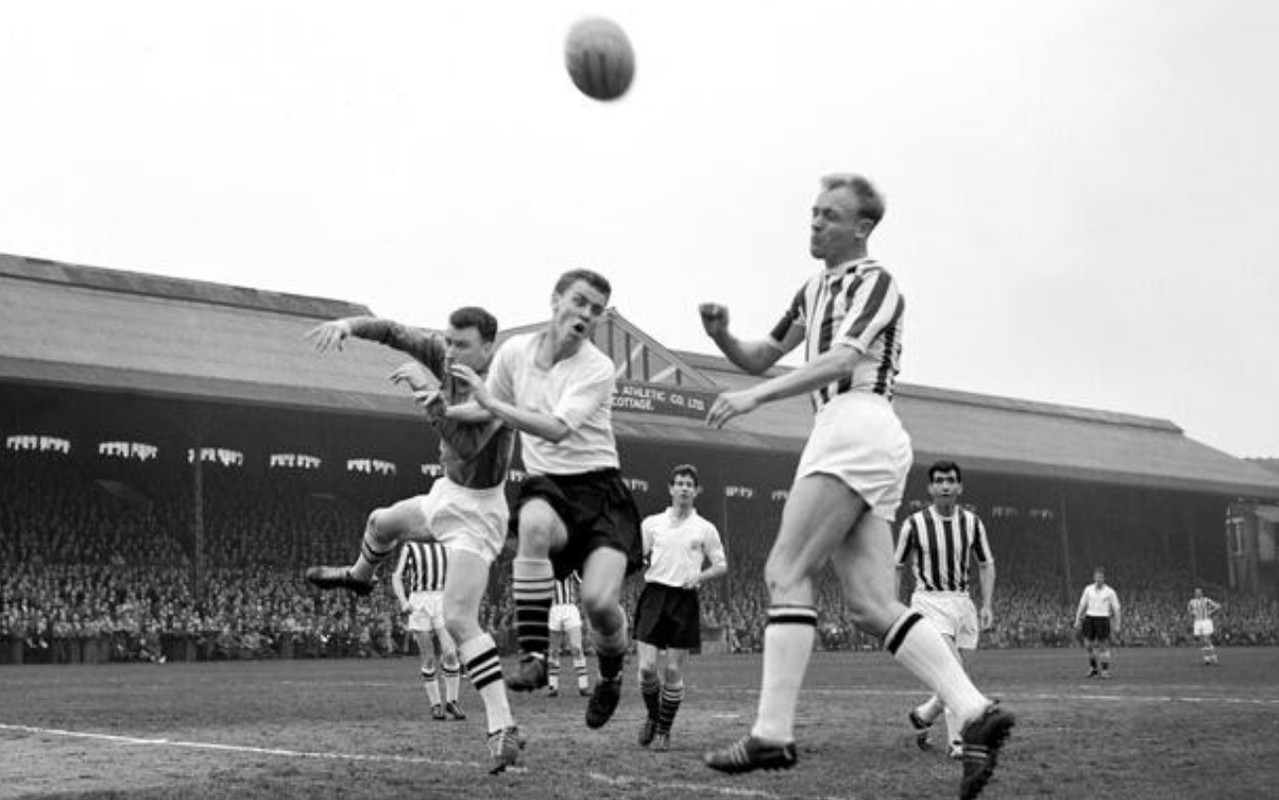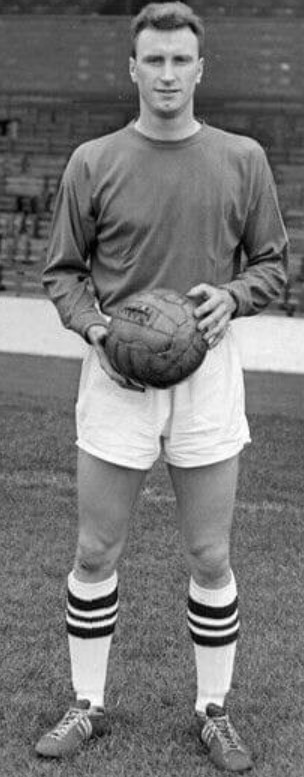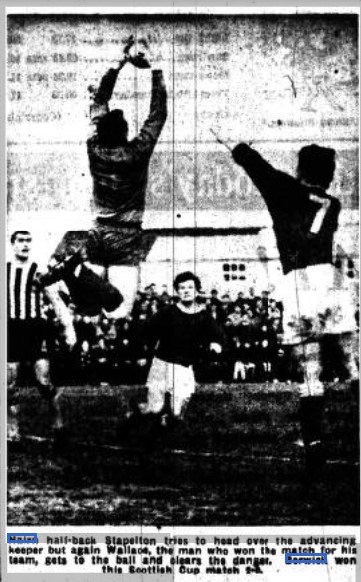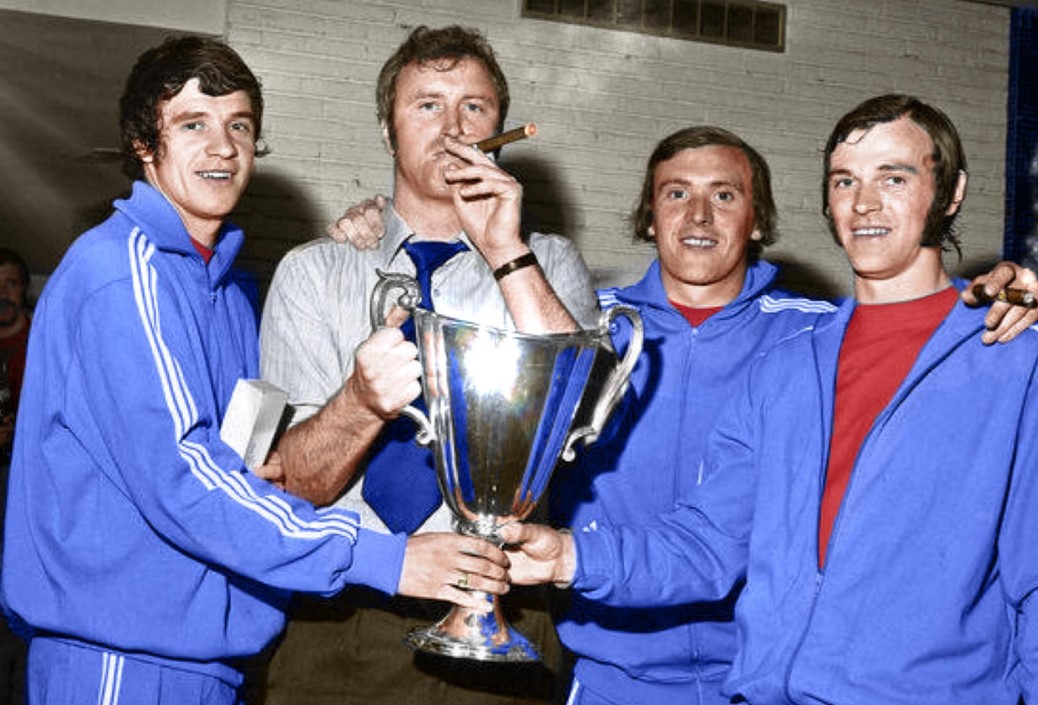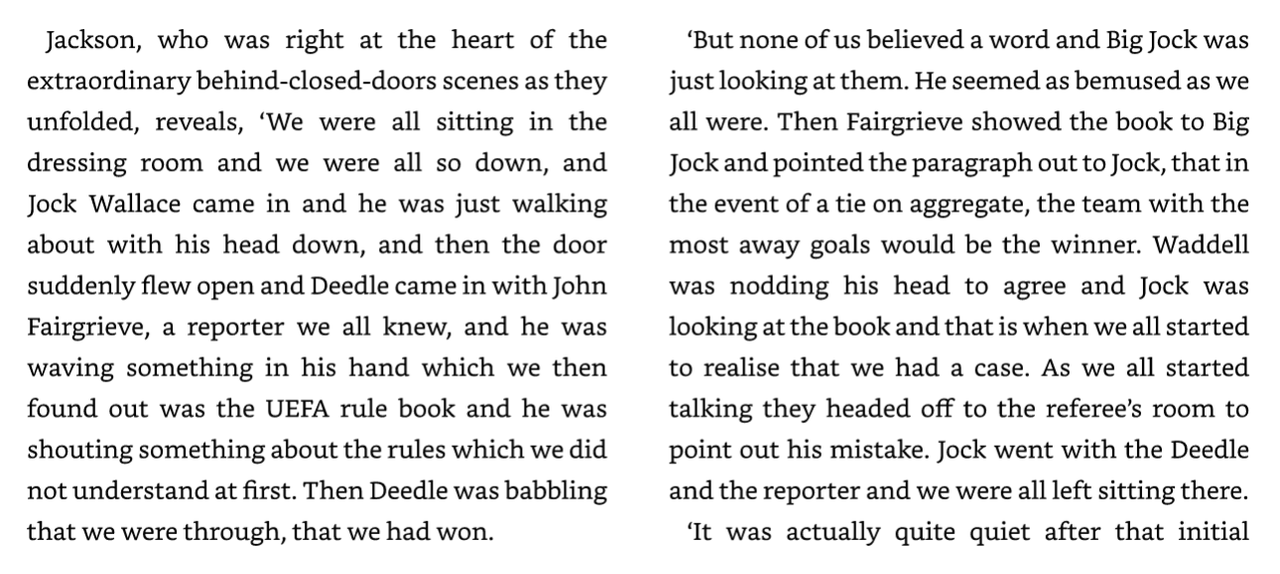Here's Part Four:
Berwick were drawn against HIbernian away in the next round, and they nearly caused another upset. They had a goal controversially disallowed and Jock saved a penalty, but in the end they lost 1-0 (if anyone can find a photo of that penalty save I'd love to see it).
What were Rangers doing that day? Having been knocked out, they had a free weekend, and they decided to head south for a match against - Leicester City. By the time the two clubs played each other again in 1984, Jock was a hero to both sets of supporters.
Berwick's next big Cup game, in 1969, was memorable for a different reason - at the time, Jock was doing four jobs at once. He was manager and goalkeeper of Berwick, and had just been appointed by Hearts to the position of 'Assistant manager and coach'. Jock insisted on working for both clubs until Berwick were knocked out of the Cup.
In the run up to the Scottish Cup ties on January 6th, Jock was preparing the Berwick players for their game at Aberdeen, and the Hearts players for their trip to Dundee. Had the two clubs been drawn to play each other the situation would have been even more surreal.
Berwick lost 3-0, but Hearts won 2-1 at Dundee, and they could now claim sole ownership of the Big Man.
That game at Pittodrie brought the curtain down on Jock's career as a professional footballer. Here he is in action that day:
So just like his father, his last game was a defeat in in a Scottish Cup tie. Jock Senior had been 38 and knew his time was up, Jock Junior was now 33, and told the press he was still the best keeper in Scotland.
But it was time to hang up his gloves, and to devote his energy to inspiring others.
Hearts had big plans for Jock Wallace. Second in command at first, they saw him as the long-term successor to boss John Harvey.
Part of Jock's plan at Tynecastle was to blood the youngsters - it was here that he first realised the benefits of giving youth a chance. Here he is with Harvey and some of those young players:
Two of them, Eddie Thomson and Davie Clunie, were chosen for a Scotland v England Under-23 match at Sunderland in March 1970. Jock wasn't to know it as he traveled down with the two players to Roker Park, but a snow storm that caused the game to be abandoned in the second half would have big long-term consequences.
When the game was called off, he walked back to his hotel in the snow with Rangers assistant boss Willie Thornton. Jock spoke about his ideas - and Thornton was impressed. He went away with an idea of his own.
So now we come to his years at Rangers. Most of you reading this will have a better perspective on that time than I do, but I'll just reproduce it here as it was on the Leicester site and hope that I haven't committed too many contextual blunders. Please tell me if I have.
Jock Wallace was appointed Assistant Manager of Rangers in April 1970, though in truth he was more than an 'assistant'. He would have as much influence over the team as boss Willie Waddell.
Rangers' task was clear. In the season just ending, Rangers finished second - behind Celtic. They'd lost in the Scottish Cup - at Celtic. And they'd been knocked out of the League Cup - by Celtic.
Their Old Firm rivals had now won five titles in a row. Rangers hadn't won anything since a League Cup triumph in 1966.
Six months later, they finally had a chance. It was the League Cup Final again - their opponents, of course, Celtic.
Wallace surprised Waddell by suggesting they play 16 year old Derek Johnstone at centre-forward. Waddell said 'He's only a kid', but Jock replied 'He's the only player we have that can beat Billy McNeill in the air'.
Jock got his way. Here's what happened:
Rangers won 1-0. From that moment on, Jock never had any doubts about giving youth a chance.
Just ten weeks after that Final, 66 fans lost their lives in the Ibrox disaster. It was a tragedy that Jock experienced directly:
One long term consequence was Willie Waddell's desire to completely rebuild the ground, ripping up the old terraces and turning it into a stadium. When the plan was finally ready in 1978, it seems that the prioritizing of stadium redevelopment over team rebuilding was a major factor in Waddell falling out with Jock, who then quit to join Leicester City (though the full picture of why he quit may never be known).
The European Cup Winners Cup had a reputation as the easiest of the three UEFA trophies to win. But in 1971/72, Rangers' path to the final couldn't have been tougher. After getting past French Cup winners Rennes in Round One, they came up against Sporting Lisbon in a tie with an extraordinary conclusion.
Rangers won their home leg 3-2, and Sporting won the return by the same score. In extra time, both sides scored again, so it was 6-6 overall. The referee told the players that a penalty shoot out was required.
Rangers missed their first spot kick, and their second, and their third, and their fourth. Sporting scored three and that was it. Rangers trooped disconsolately back to the dressing room.
Then there was a knock on the door, and someone said there'd been a mistake. The penalty shoot out should never have taken place. Rangers should have been declared the winners after extra time on the away goals rule.
No-one knew what to believe, but UEFA confirmed the away goals ruling, and Rangers were in the quarter-finals.
Rangers then had to get past Torino of Italy before facing Bayern Munich in the semi-finals.
This was the Bayern of Gerd Muller, Franz Beckenbauer, Sepp Maier, Paul Breitner and Uli Hoeness - the spine of the great West German team that outclassed England at Wembley that same spring - what many believe to be the greatest ever German XI.
Rangers drew 1-1 in Munich and then at Ibrox Sandy Jardine scored a famous 25 yarder past Maier after just two minutes. Rangers won 2-0 and they were heading to Barcelona to meet Dynamo Moscow in the final.
Here's the key moments from the match. Great pitch invasion at the end:
And here's Jock with the trophy:
